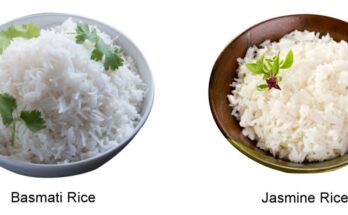A healthy diet rich in protein, “good fats,” and fruits and vegetables is key to ensuring a supply of nutrients to improve sports performance. The food selection will also depend on the nutritional status of the person, their health, age, and training level.
Before modifying the diet or starting a “diet,” it is always advisable to visit a specialist doctor for advice.
A healthy diet provides people who do sports with nutrients and energy to perform better, such as improving the recovery of the body during and between sports activity or reducing the risk of injury and disease.
Eating 2 or 3 hours before exercising is key so that the body has time to digest food, use nutrients, and have muscle energy. So is reducing the consumption of alcoholic beverages.
It is worth remembering that half an hour of daily exercise is the minimum recommended by the WHO to have a healthy life, for the benefits it generates for physical and mental health.
Foods that improve sports performance
Cruciferous Vegetables:
Vegetables in this family, such as arugula, broccoli, cabbage, radish, and cauliflower, have a high concentration of antioxidants and fiber. However, in excess, they can cause digestive discomfort due to their flatulent properties.
Other Vegetables:
There is no daily limitation of vegetables to consume because it is recommended to consume at least 500 gr per day.
Cereals:
It is especially recommended to include millet, quinoa, amaranth, and oats in the diet, which are the best sources of energy. Also a variety of rice like brown rice.
Fruits:
They provide large amounts of vitamins and minerals. They are also hydrating and energetic because they are basically made up of 80-90% water and carbohydrates. The essential ones are apple, pear, watermelon, melon, citrus, and banana. Always consume them before meals for better absorption of their nutrients.
Legumes:
They are rich in vegetable proteins and minerals. They can be ideal for vegetarian athletes or for those who want to leave meat a little aside, due to its high content of proteins of vegetable and mineral origin.
Good Fats:
These are known as “Omega fats” and are found in nuts, seeds, avocado, fish, meat, and olive oil. They are essential for the brain and help to have a quick reaction from the body.
Pasta:
Combined with vegetables, they provide carbohydrates, a basic energy nutrient for muscle contraction.
Water:
2 liters per day. The night before physical activity, it is preferable to take sips of water; On the other hand, minutes before doing sports, it is advisable to drink large amounts of water. One trick is to carry a bottle of water everywhere. Water is essential to replace lost salts with perspiration.
Quinoa:
It contains twice as much protein as a nutritional cereal, good fats, that reduce the level of bad blood cholesterol, carbs, such as starch, vitamins B, C, and E. It also provides essential amino acids to generate pure muscle and overcome from intense workouts.
Without a doubt, sports and healthy eating go hand in hand.


